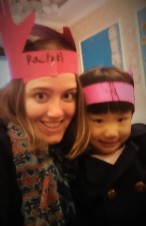 When I got here, the whole school situation seemed rather chaotic and lacking structure. However, after a few weeks, I’m beginning to get into the swing of things and catch on to how things work around the kindergarten. To start off with, there are 4 teachers in each classroom (ideally). There’s a ‘life teacher’, who does the food and cleaning tasks. there’s a head teacher and a TA. The TA pretty much always speaks more English than the head teacher in every classroom, and the TA and the head teacher alternate weeks teaching the Chinese class.
When I got here, the whole school situation seemed rather chaotic and lacking structure. However, after a few weeks, I’m beginning to get into the swing of things and catch on to how things work around the kindergarten. To start off with, there are 4 teachers in each classroom (ideally). There’s a ‘life teacher’, who does the food and cleaning tasks. there’s a head teacher and a TA. The TA pretty much always speaks more English than the head teacher in every classroom, and the TA and the head teacher alternate weeks teaching the Chinese class.
And then there’s (theoretically) a foreign teacher in each classroom. Everyone asked me “how is it that they’re taking you in the middle of the school year?” Because foreign teachers end contracts, ditch off, get fired during all times of the year. Currently there are two classrooms that need English teachers in the school.
Now, the daily schedule goes as follows:
8:30 – The kids come in, get dropped off by their parents and they eat breakfast (which consists of some combination of cake-ish bread with some seeds on it, a roll, some quail eggs, or really soppy looking oatmeal).
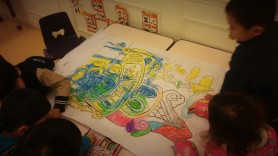 9:00 – Classes. There are two 30 minute classes, with a short fruit eating break in between them. Typically, English class comes first at 9am, but sometimes if there is a kid that’s always coming in late, they ask us to switch to the second period (9:45/9:50 to 10:15/10:20).
9:00 – Classes. There are two 30 minute classes, with a short fruit eating break in between them. Typically, English class comes first at 9am, but sometimes if there is a kid that’s always coming in late, they ask us to switch to the second period (9:45/9:50 to 10:15/10:20).
10:30 – Dancing! The kids go outside (unless it’s raining or really really cold) and dance these interesting hand waving and jumping concoctions of movements. Then they run a few laps, and the teachers might do some other activity or let them play on the playground for a bit before bringing them in for lunch.
11/11:30 – Lunch. This time seems kind of class dependent. Usually my class eats lunch at 11, but that is certainly very flexible — others eat at 11:15 or 11:30. It’s all about how long you let them play outside for. After lunch, every class usually goes on a little walk around the preschool. We sing songs, and do walking games. A little last bit of exercise before naptime. (!!!!!)
12:30 – NAPTIME NAPTIME NAPTIME NAPTIME NAPTIME NAPTIME!!!!!!!!!!!!!!!!!!!!!!!!!!!!!!!!!!!!!!!!!! Favorite time of the day 😉 Teachers eat lunch and then we either take a nap, hang out quietly doing stuff, or we can leave the preschool and go out for coffee or something.
2:30 – Wake up the little rascals and make them put on their clothes and drink some milk (full cream) or some watery soup.
3:00 – In the afternoons, they have activities. And it varies from day to day what they’re doing. Mine go out and run for a bit before going to their first activity (recreation, art, music, library). Then a couple days a week, they spend time in the classroom doing some activity that the head teacher has planned.
4:00/4:30 – Dinner. Again, not exactly set in stone, but closer to 4 for my class. After dinner, my head teacher organizes them and she reads them a book or has them do some sort of activity until their parents come and get them.
5:30 – Kids go home, dinner time for the staff (or we can go home if we want).
Hurrah! And that’s my day. Every single day. Monday through Friday.
Yahoooooo. Sometimes we have half days on Saturday for special Parent Student game days. 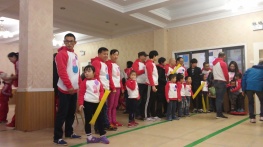 The Chinese don’t take very many days off and they have school all year round. They get two weeks off in the spring, National day (in the fall), Christmas day, New Years Day, and that’s essentially it. f you want to be at the top of your game, you don’t take 3 months off in the summer to lounge around and let your mind forget everything you’ve learned!
The Chinese don’t take very many days off and they have school all year round. They get two weeks off in the spring, National day (in the fall), Christmas day, New Years Day, and that’s essentially it. f you want to be at the top of your game, you don’t take 3 months off in the summer to lounge around and let your mind forget everything you’ve learned!
 “I took French for 4 years and I don’t remember a word.”
“I took French for 4 years and I don’t remember a word.”
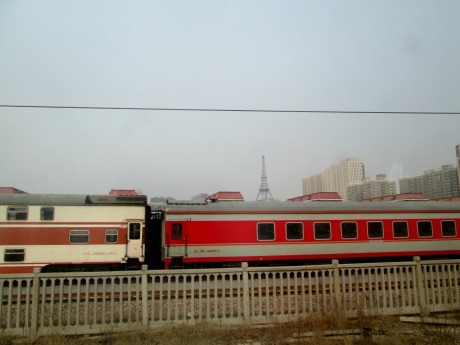 Recently, I had the pleasure of getting to spend four beautiful, perfect days in Beijing — which enabled me to get some experience with china’s transportation system as well as check off some must-sees on my travel bucket list.
Recently, I had the pleasure of getting to spend four beautiful, perfect days in Beijing — which enabled me to get some experience with china’s transportation system as well as check off some must-sees on my travel bucket list.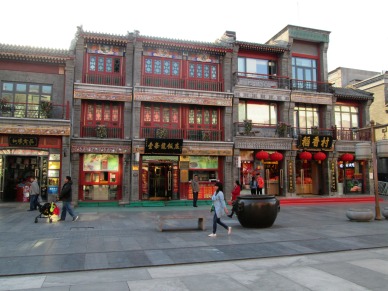 Finally we arrived in Beijing and it is breathtaking. We are so excited to be in a new city for a change. We navigate through the train station, where we are greeted by the bluest, clearest sky I’ve seen in months. People told me horror stories about Beijing — that there’s so many people you’ll never get anywhere, that the pollution is so bad you won’t be able to breathe at all, the people are rude, there’s hardly anything to see… They were wrong.
Finally we arrived in Beijing and it is breathtaking. We are so excited to be in a new city for a change. We navigate through the train station, where we are greeted by the bluest, clearest sky I’ve seen in months. People told me horror stories about Beijing — that there’s so many people you’ll never get anywhere, that the pollution is so bad you won’t be able to breathe at all, the people are rude, there’s hardly anything to see… They were wrong. Now, I will admit that I came to Beijing in the perfect circumstances (by accident actually!) –> there was no pollution because they just cleansed the air after some big delegate meetings, it was right before high season started so I got all the low season prices for the same weather and circumstances, and there were less people because it was the week before a Chinese holiday.But all that aside, there were still some simply basic things I liked more about Beijing:
Now, I will admit that I came to Beijing in the perfect circumstances (by accident actually!) –> there was no pollution because they just cleansed the air after some big delegate meetings, it was right before high season started so I got all the low season prices for the same weather and circumstances, and there were less people because it was the week before a Chinese holiday.But all that aside, there were still some simply basic things I liked more about Beijing: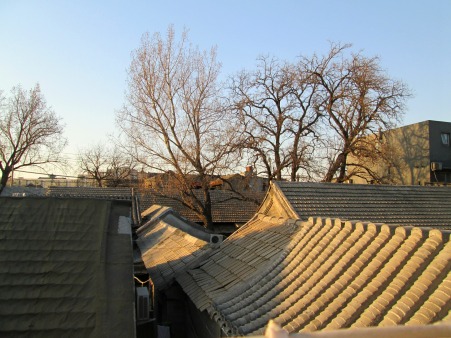
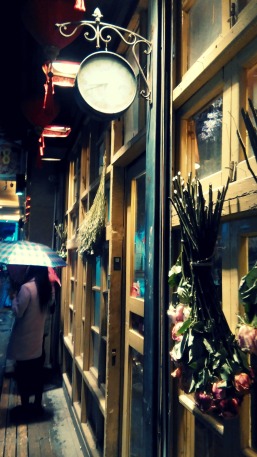
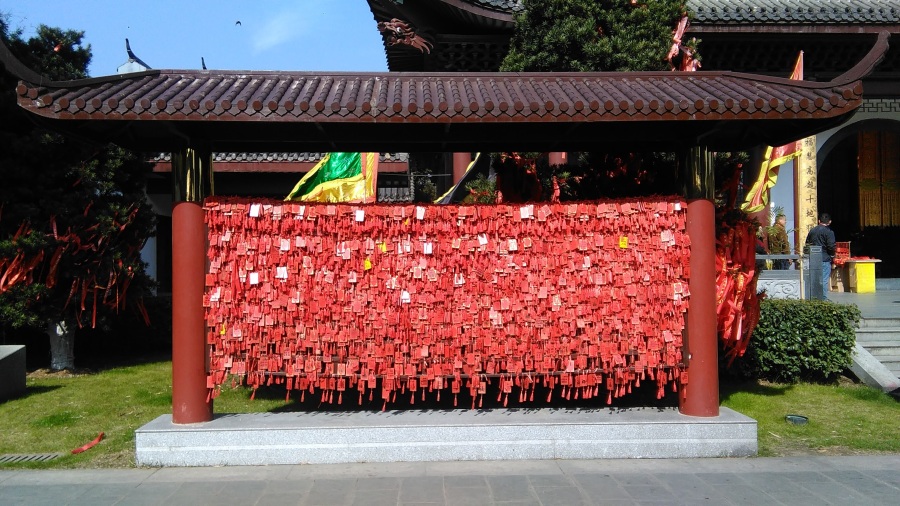
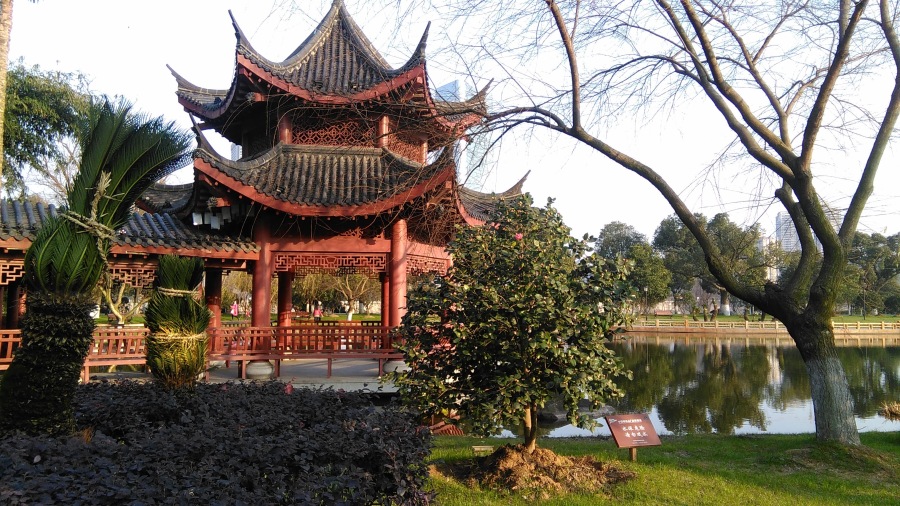

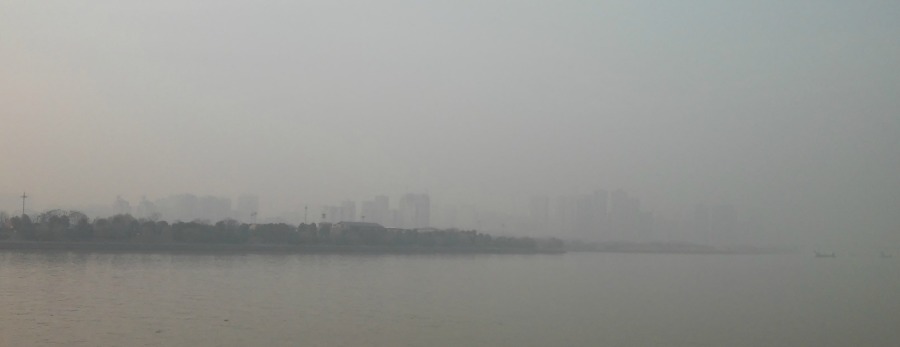
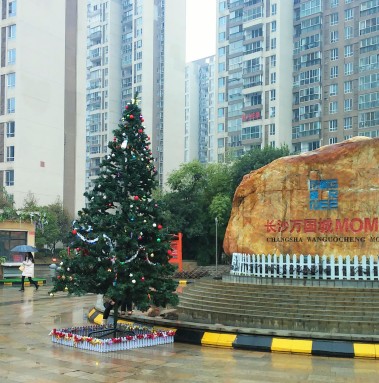 I’ve gotten a lot of questions about how/if the Chinese celebrate Christmas. In reality they don’t. In fact, my kindergarten even still had school on Christmas day! But the foreigners in Changsha do still celebrate Christmas (kind of), and as always, business are willing to make a profit off of that! 😉
I’ve gotten a lot of questions about how/if the Chinese celebrate Christmas. In reality they don’t. In fact, my kindergarten even still had school on Christmas day! But the foreigners in Changsha do still celebrate Christmas (kind of), and as always, business are willing to make a profit off of that! 😉



 When I got here, the whole school situation seemed rather chaotic and lacking structure. However, after a few weeks, I’m beginning to get into the swing of things and catch on to how things work around the kindergarten. To start off with, there are 4 teachers in each classroom (ideally). There’s a ‘life teacher’, who does the food and cleaning tasks. there’s a head teacher and a TA. The TA pretty much always speaks more English than the head teacher in every classroom, and the TA and the head teacher alternate weeks teaching the Chinese class.
When I got here, the whole school situation seemed rather chaotic and lacking structure. However, after a few weeks, I’m beginning to get into the swing of things and catch on to how things work around the kindergarten. To start off with, there are 4 teachers in each classroom (ideally). There’s a ‘life teacher’, who does the food and cleaning tasks. there’s a head teacher and a TA. The TA pretty much always speaks more English than the head teacher in every classroom, and the TA and the head teacher alternate weeks teaching the Chinese class. 9:00 – Classes. There are two 30 minute classes, with a short fruit eating break in between them. Typically, English class comes first at 9am, but sometimes if there is a kid that’s always coming in late, they ask us to switch to the second period (9:45/9:50 to 10:15/10:20).
9:00 – Classes. There are two 30 minute classes, with a short fruit eating break in between them. Typically, English class comes first at 9am, but sometimes if there is a kid that’s always coming in late, they ask us to switch to the second period (9:45/9:50 to 10:15/10:20). The Chinese don’t take very many days off and they have school all year round. They get two weeks off in the spring, National day (in the fall), Christmas day, New Years Day, and that’s essentially it. f you want to be at the top of your game, you don’t take 3 months off in the summer to lounge around and let your mind forget everything you’ve learned!
The Chinese don’t take very many days off and they have school all year round. They get two weeks off in the spring, National day (in the fall), Christmas day, New Years Day, and that’s essentially it. f you want to be at the top of your game, you don’t take 3 months off in the summer to lounge around and let your mind forget everything you’ve learned!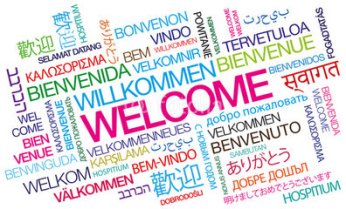 This Sunday afternoon, I managed to get out of my apartment and find my way to a church that I’d heard about from another foreigner (who’s been living in Changsha for a couple years now). I was a little unsure if I was in the right place at first, so I just kind of hung around for a bit until I started to see a bunch of other foreign people going in the building. Then I just followed them.
This Sunday afternoon, I managed to get out of my apartment and find my way to a church that I’d heard about from another foreigner (who’s been living in Changsha for a couple years now). I was a little unsure if I was in the right place at first, so I just kind of hung around for a bit until I started to see a bunch of other foreign people going in the building. Then I just followed them.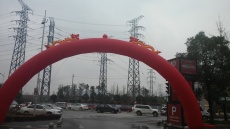 It’s easily evened out by the awe of the Chinese characters everywhere, the dragon arch in front of my apartment complex, and the general joy of being back in a city with public transportation.
It’s easily evened out by the awe of the Chinese characters everywhere, the dragon arch in front of my apartment complex, and the general joy of being back in a city with public transportation.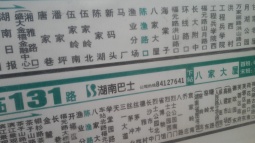 I’ve begun to notice that going to the grocery store is at least a 3-4 (sometimes even 5) hour ordeal and almost always leaves me feeling frustrated and incompetent. The joy of being in a city is dampened by the realization that the buses shut down at 9 or 10pm (even on weekends), followed by the panic that I don’t know how to tell a taxi driver where my apartment is located.
I’ve begun to notice that going to the grocery store is at least a 3-4 (sometimes even 5) hour ordeal and almost always leaves me feeling frustrated and incompetent. The joy of being in a city is dampened by the realization that the buses shut down at 9 or 10pm (even on weekends), followed by the panic that I don’t know how to tell a taxi driver where my apartment is located.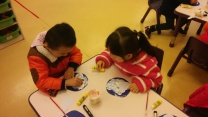 That said, China is still a great experience and I’m not regretting a thing (except for maybe the whole ‘preschool’ part of the deal). Since nobody really speaks English, it’s forcing me to get on the ball about really buckling down and studying Chinese or look like an incompetent American.
That said, China is still a great experience and I’m not regretting a thing (except for maybe the whole ‘preschool’ part of the deal). Since nobody really speaks English, it’s forcing me to get on the ball about really buckling down and studying Chinese or look like an incompetent American. 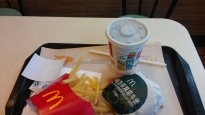 Since I don’t want to resort to McDonald’s for every meal on every weekend, I might actually have to learn to cook (and get over my fear of speaking to my fellow Changsharén). If I want to buy something, I’m going to have to learn to negotiate for the price I want to pay.
Since I don’t want to resort to McDonald’s for every meal on every weekend, I might actually have to learn to cook (and get over my fear of speaking to my fellow Changsharén). If I want to buy something, I’m going to have to learn to negotiate for the price I want to pay.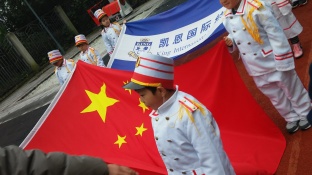 School in China is indeed year round with hardly any vacations (so if you’re looking for the reason that the Chinese tend to be ahead of us academically—that would be at least part of it). The children at my school can already read and write in Chinese. However, let me burst the bubble that Chinese babies are inherently more well-behaved than American ones. These children do, in fact, act like little (adorable) demons several times a day. French children still have the prize so far for the most well behaved…but then again, I never worked in a French preschool!
School in China is indeed year round with hardly any vacations (so if you’re looking for the reason that the Chinese tend to be ahead of us academically—that would be at least part of it). The children at my school can already read and write in Chinese. However, let me burst the bubble that Chinese babies are inherently more well-behaved than American ones. These children do, in fact, act like little (adorable) demons several times a day. French children still have the prize so far for the most well behaved…but then again, I never worked in a French preschool! The ‘normal’ toilet in China is a squatting one.
The ‘normal’ toilet in China is a squatting one.